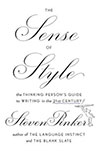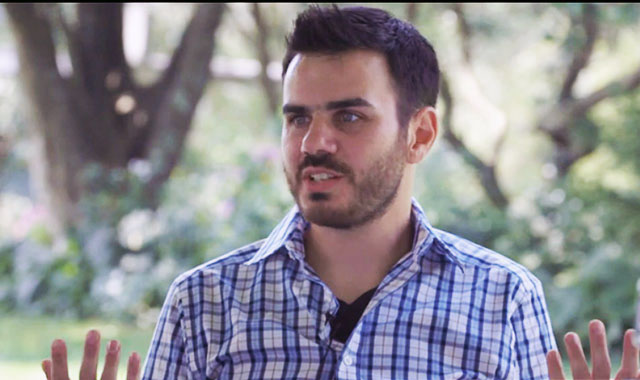What are the arts but products of the human mind which resonate with our aesthetic and emotional faculties? What are social issues, but ways in which humans try to coordinate their behavior and come to working arrangements that benefit everyone? There's no aspect of life that cannot be illuminated by a better understanding of the mind from scientific psychology. And for me the most recent example is the process of writing itself.

(37 minutes)
Introduction
Psychologist Steven Pinker's 1994 book The Language Instinct discussed all aspects of language in a unified, Darwinian framework, and in his next book, How The Mind Works he did the same for the rest of the mind, explaining "what the mind is, how it evolved, and how it allows us to see, think, feel, laugh, interact, enjoy the arts, and ponder the mysteries of life."
He has written four more consequential books: Words and Rules (1999), The Blank Slate (2002), The Stuff of Thought (2007), and The Better Angels of Our Nature (2011). The evolution in his thinking, and the expansion of his range, the depth of his vision, are evident in his contributions on many important issues on these pages over the years: "A Biological Understanding of Human Nature," "The Science of Gender and Science," "A Preface to Dangerous Ideas," "Language and Human Nature," "A History of Violence," "The False Allure of Group Selection," "Napoleon Chagnon: Blood Is Their Argument," and "Science Is Not Your Enemy." In addition to his many honors, he is the Edge Question Laureate, having suggested three of Edge's Annual Questions: "What Is Your Dangerous Idea?"; What Is Your Favorite Deep, Elegant, Or Beautiful Explanation?"; and "What Scientific Concept Would Improve Everybody's Cognitive Toolkit?". He is a consummate third culture intellectual.
In the conversation below, Pinker begins by stating his belief that "science can inform all aspects of life, particularly psychology, my own favorite science. Psychology looks in one direction to biology, to neuroscience, to genetics, to evolution. And it looks in another direction to the rest of intellectual and cultural life—because what are the arts but products of the human mind which resonate with our aesthetic and emotional faculties? What are social issues but ways in which humans try to coordinate their behavior and come to working arrangements that benefit everyone? There's no aspect of life that cannot be illuminated by a better understanding of the mind from scientific psychology. And for me the most recent example is the process of writing itself."...
—John Brockman
STEVEN PINKER is the Johnstone Family Professor in the Department of Psychology at Harvard University. He is the author of ten books, including The Language Instinct, How the Mind Works, The Better Angels of Our Nature, and The Sense of Style (September). Steven Pinker's Edge Bio page
WRITING IN THE 21ST CENTURY
I believe that science can inform all aspects of life, particularly psychology, my own favorite science. Psychology looks in one direction to biology, to neuroscience, to genetics, to evolution. And it looks in another direction to the rest of intellectual and cultural life—because what are the arts but products of the human mind which resonate with our aesthetic and emotional faculties? What are social issues but ways in which humans try to coordinate their behavior and come to working arrangements that benefit everyone? There's no aspect of life that cannot be illuminated by a better understanding of the mind from scientific psychology. And for me the most recent example is the process of writing itself.

I'm a psychologist who studies language—a psycholinguist—and I'm also someone who uses language in my books and articles to convey ideas about, among other things, the science of language itself. But also, ideas about war and peace and emotion and cognition and human nature. The question I'm currently asking myself is how our scientific understanding of language can be put into practice to improve the way that we communicate anything, including science?
In particular, can you use linguistics, cognitive science, and psycholinguistics to come up with a better style manual—a 21st century alternative to the classic guides like Strunk and White's The Elements of Style?
Writing is inherently a topic in psychology. It's a way that one mind can cause ideas to happen in another mind. The medium by which we share complex ideas, namely language, has been studied intensively for more than half a century. And so if all that work is of any use it ought to be of use in crafting more stylish and transparent prose.









